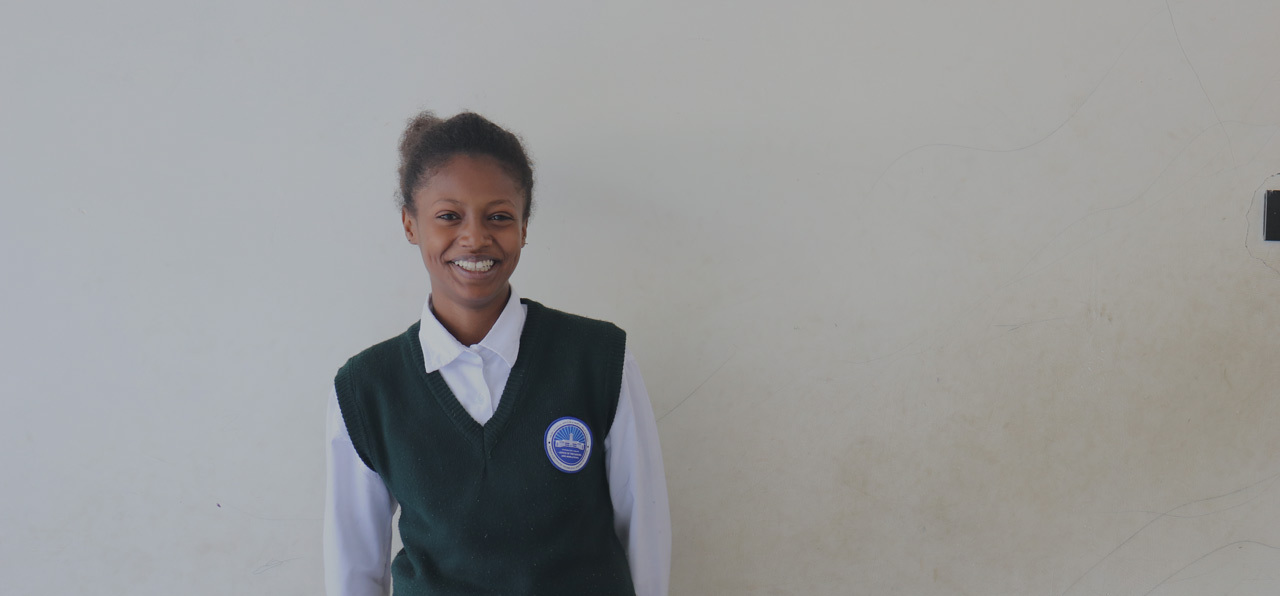Grade 7
Addis Ababa, Ethiopia
meet

meet
Grade 7
Addis Ababa, Ethiopia
Arsema, a seventh-grader at Atse Tewodros school in Addis Ababa, is an only child who lives with her mother in a neighborhood nearby. She enjoys performing (especially singing and theater), does well in school, and respects others.
Splash began transforming water, sanitation, hygiene, and menstrual health programming at Arsema’s school in 2024. Because of this, Arsema, her teachers, and her classmates no longer have to be concerned or prepare in advance for a lack of access to water during the school day. Now they know that clean water is available all the time—even if water isn’t flowing through city pipes, there are storage tanks and on-site filters that purify and provide water for everyone.
Before, Arsema would bring water from home to last the whole school day. If she ran out, she wasn’t always comfortable drinking the water at school, so she would go thirsty. There weren’t enough sinks and water stations for the number of students at the school, and the stored water wasn’t safe to drink. Furthermore, there was an issue regarding the cleanliness of the bathrooms—students would dispose of used pads anywhere in the bathroom, not in a trash bin.
Arsema joined her school’s Gender Club because she wanted to learn more about menstrual health and teach what she learned to others. She was nervous that club activities might cut into her studying time, but she has found a way to balance both pursuits. Gender Club members share knowledge and make recommendations to the school, like ensuring there are trash bins and water for flushing toilets in every bathroom stall. Arsema really enjoys teaching other students about menstrual health, especially through “edutainment” - songs and performances that both educate as well as entertain!
At first, when the Gender Club shared information about menstruation during flag ceremonies, some boys laughed and joked about it. Over time and with repeated messaging, they stopped teasing. Arsema says, "I was proud of myself when I witnessed students applying what I told them. One time a student came to me to ask for a pad without being afraid. There was a change in the attitude of the students, and I am happy to witness that.”
Before attending menstrual health training herself, Arsema says there were many taboos she used to believe, for example, “a girl should not take a shower or do sports, she should eat less food, and she should not be involved in any activities. But after the training, I understand that a girl can continue her normal life even if she is in her period.”
Arsema shared what she learned from Splash with her mother and her classmates. She wants to be a gynecologist when she grows up, supporting women through her education and training. Arsema says, “in our society, it is believed that girls are meant to do the household work and boys are supposed to play and work outside. But I learned that both boys and girls are equal and if equal opportunity is provided to them, both can perform equally.”